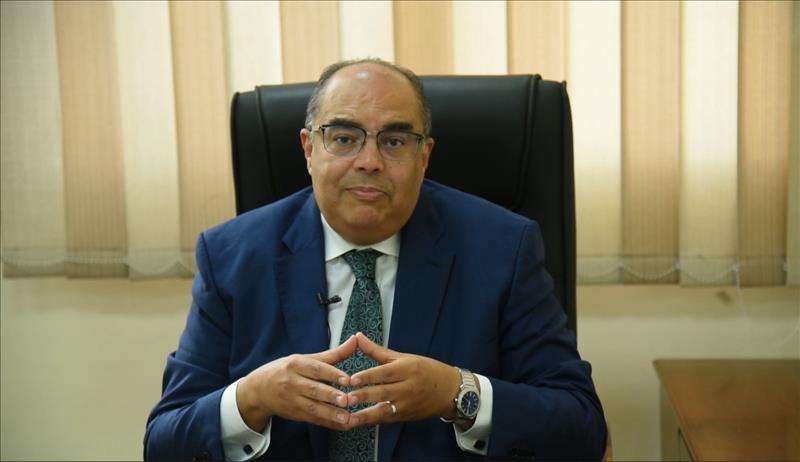
How To Finance Climate And Development Action Without Worsening Developing Countries' Debt Crisis: Mohieldin
Mahmoud Mohieldin, UN Climate Change High-Level Champion for Egypt and UN Special Envoy on Financing the 2030 Sustainable Development Agenda, spoke at the UNCTAD meetings about the challenges and opportunities of financing climate and development action in developing countries and emerging markets. He emphasized that climate action is not separate from development action, but rather an essential part of it. He also stressed that financing climate and development activities should not aggravate the debt situation of these countries, which are already struggling to repay their loans and provide basic services to their people.
According to Mohieldin, the annual cost of implementing development action in general is estimated at $5, of which $2 is needed for climate action alone. He said that $1 of this amount should come from domestic resources, while $1trn should come from external sources, including $300bn from multilateral development banks (MDBs), about $0 from the private sector, and nearly $200bn from concessional finance.
However, Mohieldin pointed out that mobilizing finance from domestic resources is not easy, as many developing countries and emerging economies are facing debt crises that drain their public budgets and limit their ability to invest in human capital and sustainable development activities. He said that the debt service of some of these countries exceeds what they spend on education and health services and that the population of these countries suffering from debt crises is about 3.3 billion people.
To overcome this challenge, Mohieldin suggested several measures, such as:
Linking the public budgets to the climate and development agendas, developing incentive policies and legislation, and improving the business environment to enhance the participation of the private sector while activating clear environmental, social, and governance (ESG) criteria.
Reforming MDBs to help increase their capital and thus contribute more and more effectively to financing climate and development action, contribute to de-risking investment and financing climate and development projects, and improve relevant policies and legislation in developing countries to encourage private sector participation.
Addressing the negative impact of some new industrial policies in developed countries on the economies and competitiveness of developing countries. He said that these policies may not be in line with the rules of the World Trade Organization (WTO) and may pose more challenges to trade and investment, thus leading to widening the economic and development gap between developed and developing countries.
Activating innovative finance tools, such as blended finance policies that combine public, private, domestic, and external resources of funding, debt swap for investment in nature and climate, and establishing carbon markets in developing countries such as the African Carbon Markets Initiative launched during COP27 in Sharm El-Sheikh.
Strengthening the role of private sector and philanthropies in financing and implementing climate and development action, with MDBs adopting new and more effective policies for concessional finance.
Mohieldin concluded his speech by reaffirming his commitment to work with all stakeholders to achieve the 2030 Sustainable Development Agenda and the Paris Agreement on climate change. He said that financing climate and development action is not only a moral obligation but also a smart investment for a better future for all.

Legal Disclaimer:
MENAFN provides the
information “as is” without warranty of any kind. We do not accept
any responsibility or liability for the accuracy, content, images,
videos, licenses, completeness, legality, or reliability of the information
contained in this article. If you have any complaints or copyright
issues related to this article, kindly contact the provider above.


















Comments
No comment